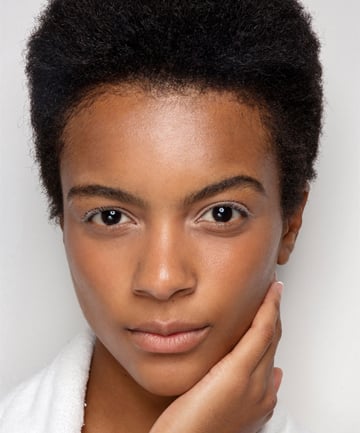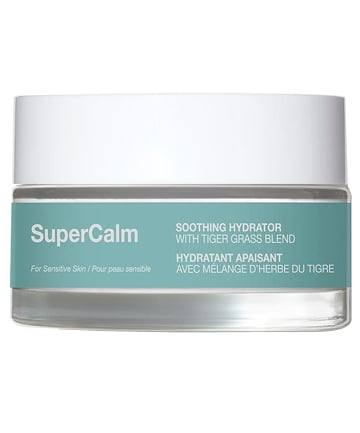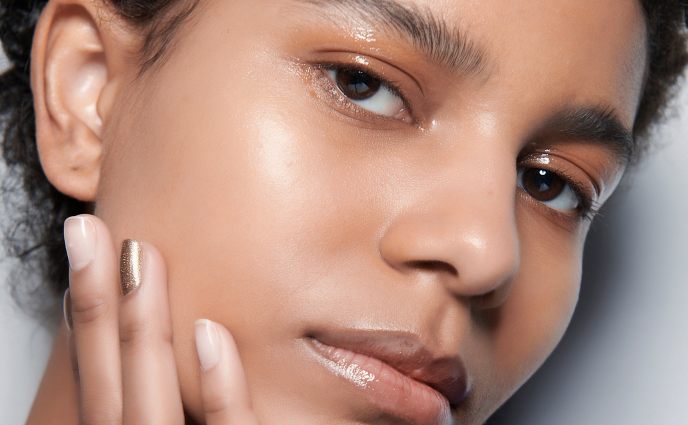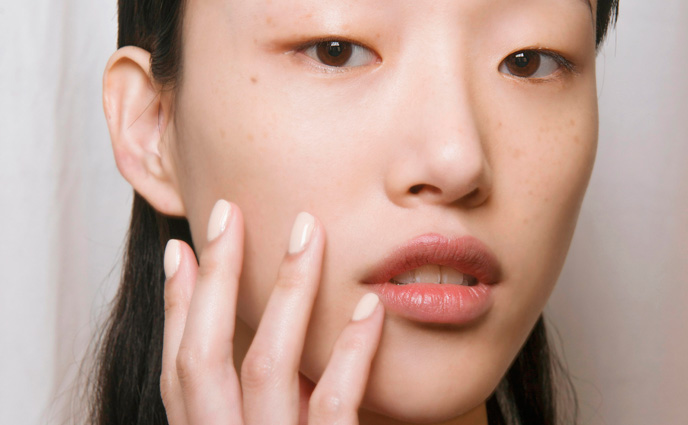Board-certified dermatologist at Park View Laser Dermatology Dr. Robyn Gmyrek, MD, says that in general, day creams might have a light consistency so they can be layered under makeup and they might include a SPF to protect against UV rays. Night creams, on the other hand, have no sunscreen and might be thicker and more emollient or moisturizing.
Tyler Gaul, founder of Protocol, adds that the consistency and viscosity changes are solely for aesthetic reasons. For instance, a lighter day cream won't interfere with applying makeup or feel heavy.
Image via Imaxtree
As previously mentioned, products intended for day use are generally lighter and might offer sun protection, whereas night creams and moisturizers could be heavier and contain actives, such as retinol.
Strong actives, like retinoids, could be too strong and/or drying to be used both day and night, or even during the day. Wesley says that using these products twice daily could increase potential side effects without necessarily increasing benefits. Therefore, it would be better in these cases to have separate day and night creams.
Image via Imaxtree
Got dry skin? A richer cream could work in the a.m. and p.m. — but remember to pair it with sunscreen during the day. Gmyrek often recommends a heavier night cream for patients with very dry skin, but it might be too greasy or thick for daytime, especially under makeup.
Oh, and for aging skin? The Organic Pharmacy founder Margo Marrone adds that as we get older the creams we use should become thicker to help battle dehydration.
Image via Imaxtree
There's no cut-and-dried answer about whether you really need separate day and night creams, since there are so many factors involved. But... it does make things easier, especially when it comes to ingredient lists.
Take actives, for example: Gmyrek says that any retinoid or vitamin A cream, should only be used at night, since they are rendered inactive by sunlight. And as previously mentioned, a double dose of retinol would be too strong for most skin types.
Another case for separate creams is when using different anti-aging actives. "If you are using anti-aging creams then I do recommend using two different ones (one for a.m. and one for p.m.)," says Gymrek. "This is so you can benefit from different active ingredients in the two formulations."
Honestly, you might be looking for different things, morning and night. Wesley says that a morning skin care routine can be about healing, nourishing and protecting skin. This can be different from at night, where actives get to work without interruption while the body is resting and healing.
Image via Imaxtree
Hoping for a moisturizer that will do double duty for day and night? It's possible. "You can most certainly use the same cream for day and night, especially if it is simply to hydrate and moisturize," says Gymrek, who recommends products containing skin-loving ingredients such as hyaluronic acid, ceramides, glycerin and/or colloidal oatmeal. Wesley adds that the moisturizing cream should be non-irritating and noncomedogenic, so it doesn't clog pores, and should contain ceramides or omega fatty acids from cold-pressed seed oils.
The Arbonne SuperCalm Soothing Hydrator With Tiger Grass Blend, $44, is a lightweight lotion that promotes skin renewal and balances and protects skin's moisture barrier using glycerin and centella asiatica.









